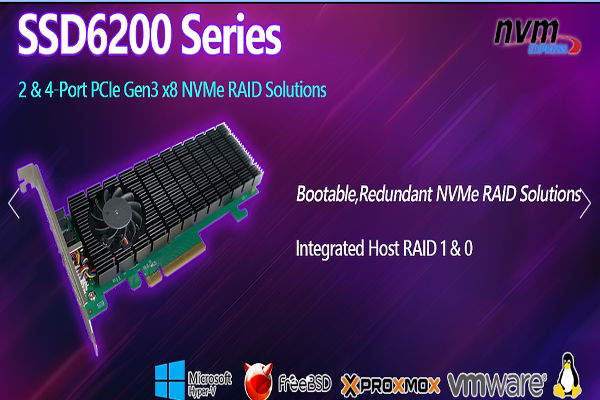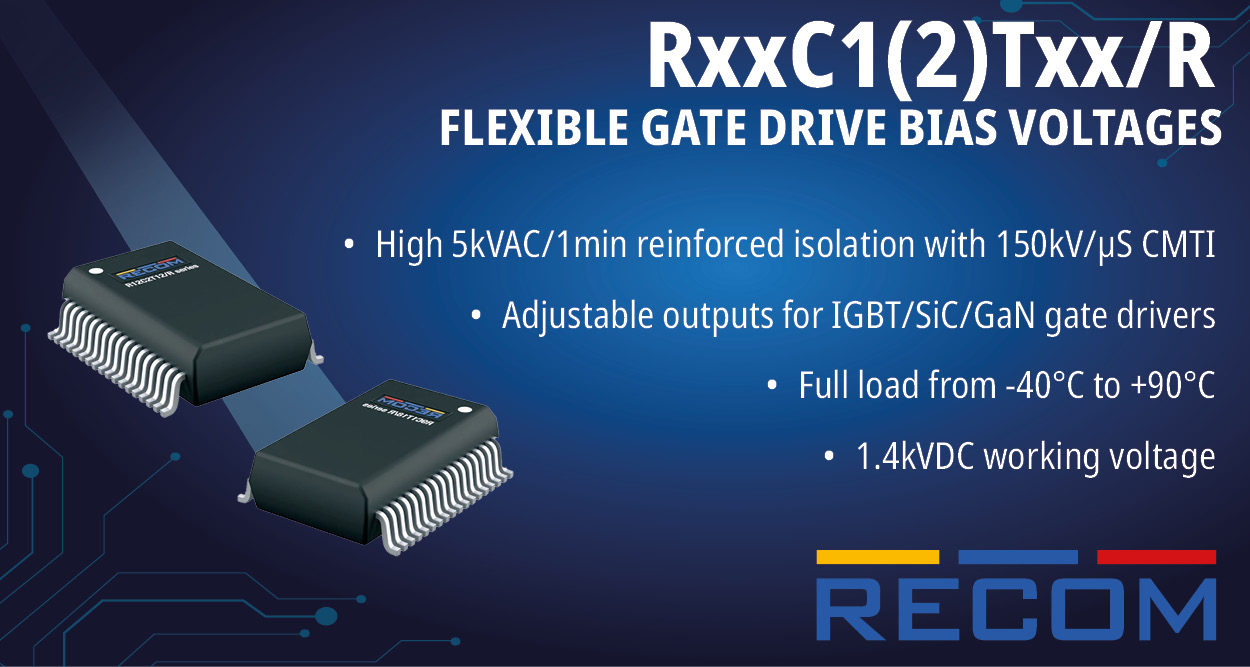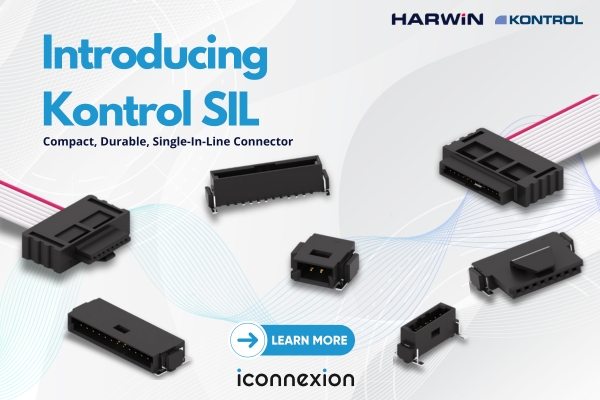Small-to-medium businesses (SMBs) looking for a way to boost the reliability of 10G network servers need look no further than HighPoint’s SSD6200 NVMe Hardware RAID add-in-cards (AICs).
Modern SMBs require storage optimized for demanding tasks, such as running databases and file servers. These applications are common, but they carry a hefty cost: high data access rates that conventional storage can’t always sustain.
SSD6200 NVMe Hardware RAID AICs let you upgrade your server storage for the better. You will geta a massive boost to IOPs, fast transfers over 10G networks, and RAID 1 mirroring in one low-profile package.
Best of all, using the SSD6200 is effortless. This bootable, plug-and-play solution integrates seamlessly with almost all OSes and host form factors. Why not breathe some life into your legacy servers and SSDs?
SSD6200 series AICs are more than just your run-of-the-mill NVMe controllers. They are an ideal high-speed Storage Upgrade for 10G Network Servers, and can directly host up to 4x 2242/2260/2280 single and double-sided M.2 SSDs of any generation and capacity.
Cover Your Bases with Boot Drive Redundancy
The SSD6200 series deliver zero-effort security and redundancy. Each AIC includes on-card host RAID 1 support, which can dramatically increase the resiliency of any bootable volume.
RAID 1’s “mirrored” backup strategy makes it the simplest RAID level. But sometimes, simple is ideal — RAID 1 is the most effective option for securing bootable volumes. If the original SSD should fail or stop respond for any reason, the mirrored backup will immediately take the reins. The process is entirely transparent and perfectly seamless.
Universal Compatibility: SSD6200 AICs are universally compatible with any x86 server or workstation with a PCIe 5.0/4.0/3.0 x8 host interface.
Low-profile form factor that fits all platforms from 1U and 2U rackmounts to full-height chassis.
Integrated hardware RAID 0, 1, and JBOD capability – no software application is required, and any arrays hosted by the AIC will be immediately recognized by the OS as an ordinary physical drive.
Native support for all modern OS and virtualization platforms; this includes VMware ESXi, Proxmox, XenServer, Linux Distributions such as RHEL and Ubuntu, and all Windows-based OS including Microsoft Hyper-V, Windows Server 2022 and 11.
Streamline Serviceability in the Field
SMBs may have limited resources, but that shouldn’t stop them from leveraging advanced storage technology. SSD6200 series RAID AICs were designed with simplicity in mind.
Driverless Installation: All modern OS platforms support SSD6200 AICs natively. You don’t need advanced technical skills; you will never need to bother with software updates or device drivers again! Just install your M.2 SSDs in the AIC and insert it into your server’s PCIe slot, and boot the system. The OS will recognize the SSDs and RAID arrays automatically. Simple.
Remote Out-of-Band (OOB) Management Interface: Servicing your SSD6200-series AICs is easy with the built-in USB-C port OOB interface. Connect directly to your diagnostic platform to securely access RAID, service workflow, and monitoring features — the OOB doesn’t allow backdoor data access.
Instant RAID Configuration via Hardware Switch; Get started with RAID at the flick of a switch. The SSD6200’s hardware RAID switch streamlines production workflows, letting you configure arrays without an input device, interface, application, or even OS.
Stay in Control With a Simple yet Comprehensive Management & Monitoring Suite
Every SSD6200 AIC includes a suite of management and monitoring tools designed to simplify administration workloads.
Hardware RAID Switch; Pre-OS RAID configuration: SSD6200A series AICs feature a set of built-in toggle switches that enable administrators of any skill level instantly configure arrays outside of an. OS. You needn’t even boot the system!
OS-Level Management: SSD6200 ACIs are compatible with HighPoin’ts Proven WebGUI and CLI management tools. The WebGUI works with any modern Web Browsers and features simple Wizard-like menus for instant RAID creation and storage administration. The CLI (Command Line Interface) is ideal for seasoned pros and requires no graphical OS.
SHI (Storage Health Inspector): SHI lets admins access and control Self-Monitoring Analysis and Reporting Technology (S.M.A.R.T.) attributes for each hosted NVMe device. Manage each SSD’s temperature, operational status, total bytes written (TBW) endurance, and configure temperature thresholds for each drive to boost longevity and performance.
Enhance Your Virtualization Platforms
It’s no secret that hardware RAID 1 can improve virtualization practices. Rocket 6200 NVMe AICs support multiple arrays, and each array can potentially host several bootable volumes, letting small businesses host more OSes with fewer servers.
















